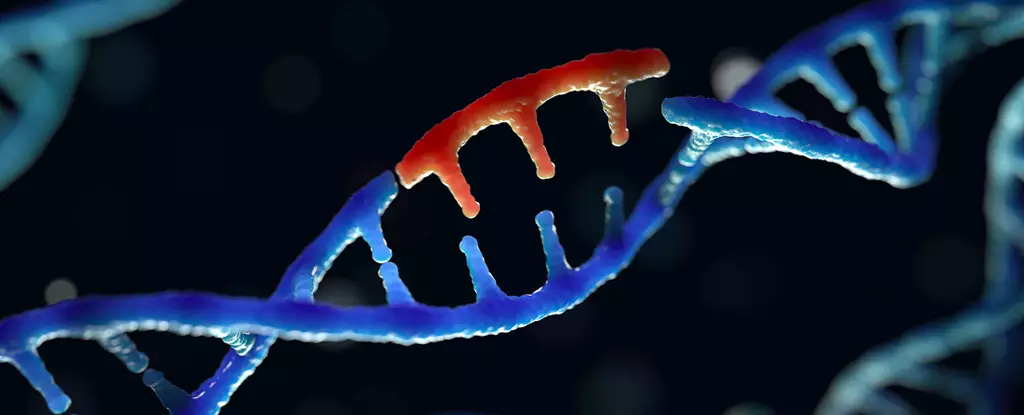Viruses have a way of leaving behind a mark when they invade our bodies. Some of these viral fragments can actually become part of our genetic material, hiding in our genomes for generations. Once believed to be inactive, these remnants of ancient viruses have now been found to play a role in cancer development. Researchers, led by bioinformatician Atma Ivancevic from the University of Colorado, have discovered that cancers can utilize certain parts of these “zombie virus” sequences for their own advantage.
A recent study conducted on colorectal cancer tissues revealed that LTR10, a type of endogenous retrovirus, can control the expression of genes involved in tumor growth. When LTR10 was deactivated in human colorectal tumor cells and in mice, genes responsible for cancer progression, such as XRCC4 which is linked to therapy resistance, were also turned off. This discovery led to more effective tumor-shrinking treatments in mice, highlighting the potential impact of these ancient viruses on cancer development.
Researchers found that LTR10 acts as an epigenetic switch, regulating the expression of cancer-associated genes across tumors. In fact, one family of retroviruses, including LTR10, was found to control up to 70 different cancer-related genes. While the study was able to identify the specific genes influenced by LTR10 in tumor cells, further research is needed to confirm the direct association between these genes and cancer progression. The team suggests conducting more studies using patient-derived organoids to establish these connections.
As we age, our immune defenses weaken, potentially allowing more of these dormant viral fragments to become active. This resurgence of “zombie virus” parts could contribute to a variety of health issues later in life, beyond just cancer. Scientists are gradually uncovering the hidden complexities of our biology, shedding light on the role of ancient viruses in the development of various diseases.
The interaction between ancient viral remnants and our genetic material is a fascinating area of research that has significant implications for understanding and treating cancer. By unraveling the influence of these “zombie virus” parts on gene expression and disease progression, we may discover new therapeutic targets and strategies for combating cancer and other age-related health problems.



Leave a Reply